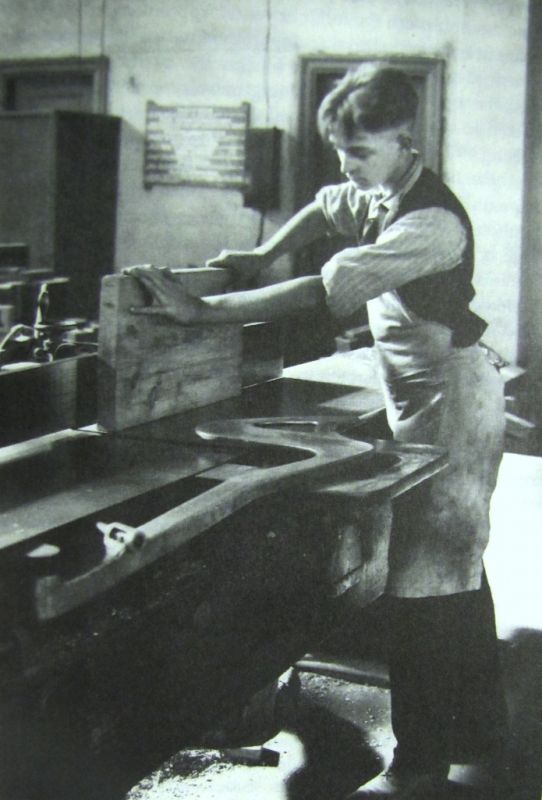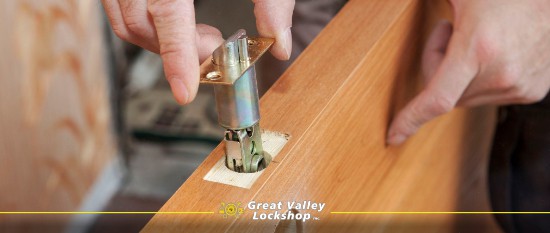DON’TS for Makers of Models and Moulds –

DON’T start your job until you have it well fixed in your mind, or you may get in a mess later on.
DON’T trouble the foreman with foolish questions. He has troubles of his own. Besides, you may expose your own ignorance; but
DON’T try to get along without really necessary information which the foreman may have forgotten to give you. You may guess wrong.
DON’T take time to lay out a job, and then not use the lay-out; but
DON’T rush at a job.
DON’T fail to study economy both of materials and time; both cost your employer money.
DONT miss checking all dimensions on drawing as well as model.
DON’T make a model without knowing how it is going to be moulded; nor a mould without thinking how the articles are to be made from it.
DON’T accept your first idea as to the arrangement of the mould. Think if there is not a better way.
DON’T snort when you get an unpleasant job. Do it cheerfully, and if you think your employer is rubbing it in you can leave. If you are sure he is, you had better.
DON’T pick out all the best bits for yourself when you have helpers.
DON’T despise the apprentice. He did not come simply to keep the shop clean, so let him do things. If he makes mistakes, don’t shout too much, and
DON’T forget that you had your troubles at his age.
DON’T think you know it all. There are others who know a little.
DON’T think, when you see a circle, the work must be done on the lathe. Some work is better done with a profile, and
DON’T forget that a sharp hand-saw is a good tool, and that cutting to a line is not quite a lost art.
DON’T leave your tools lying around, and expect the careful man to keep you in stock.
DON’T borrow tools, even from the apprentice, and forget to return them, and, above all,
DONT borrow when the other man is not looking.
DON T assume that any drawing is correct. Be quite sure before you begin work.
DON’T keep your place so littered up that it takes ten minutes to find a small tool.
DON’T think because you are ninety-ninth cousin to the boss that you are entitled to more privileges than anyone else.
DON’T begin late and leave early, and
DON’T do any fooling in working hours. You are paid to work, not play.
DON’T think that all the time you spend in the making shops is wasted. It depends on yourself whether it is or not.
DON’T forget to consult the man who will have to use the moulds; his suggestions may be useful, and we cannot do without him.
DON’T forget that the maker is in a good position to show you up, so
DON’T fail to consider his convenience at all times.
DON’T forget that the maker will try and throw all the blame for faulty goods on to you if he possibly can, so
DON’T leave your mistakes for others to find out: find them out for yourself, and if you do
DON’T let them go on the chance of their being overlooked. Be sure your sins will find you out, even if they do involve someone else as well.
DON’T say, “ That is near enough.”
DON’T fail to mark all pieces properly so that all may know what they are, and
DON’T forget to place marks on pieces that may easily be wrongly fitted.
DON’T forget to mark the size on the mould when several sizes of the same pattern are in existence. It saves a lot of time and mistakes.
DON’T waste time and money on unnecessary work, but
DON’T get into the way of slacking all round.
DON’T think you know more than your foreman, even if you do, and
DON’T try to keep one eye on him and the other on your work; it is very difficult to watch both.
DON’T fail to have confidence in yourself, but
DON’T think you cannot improve. Try to do better each day.
DON’T lose your head and swear when things go wrong. Other people have made a few mistakes before you began, but
DON’T expect top wages unless you turn out work promptly and properly.
The British Clayworker – November 1907
– Jeff Burks






